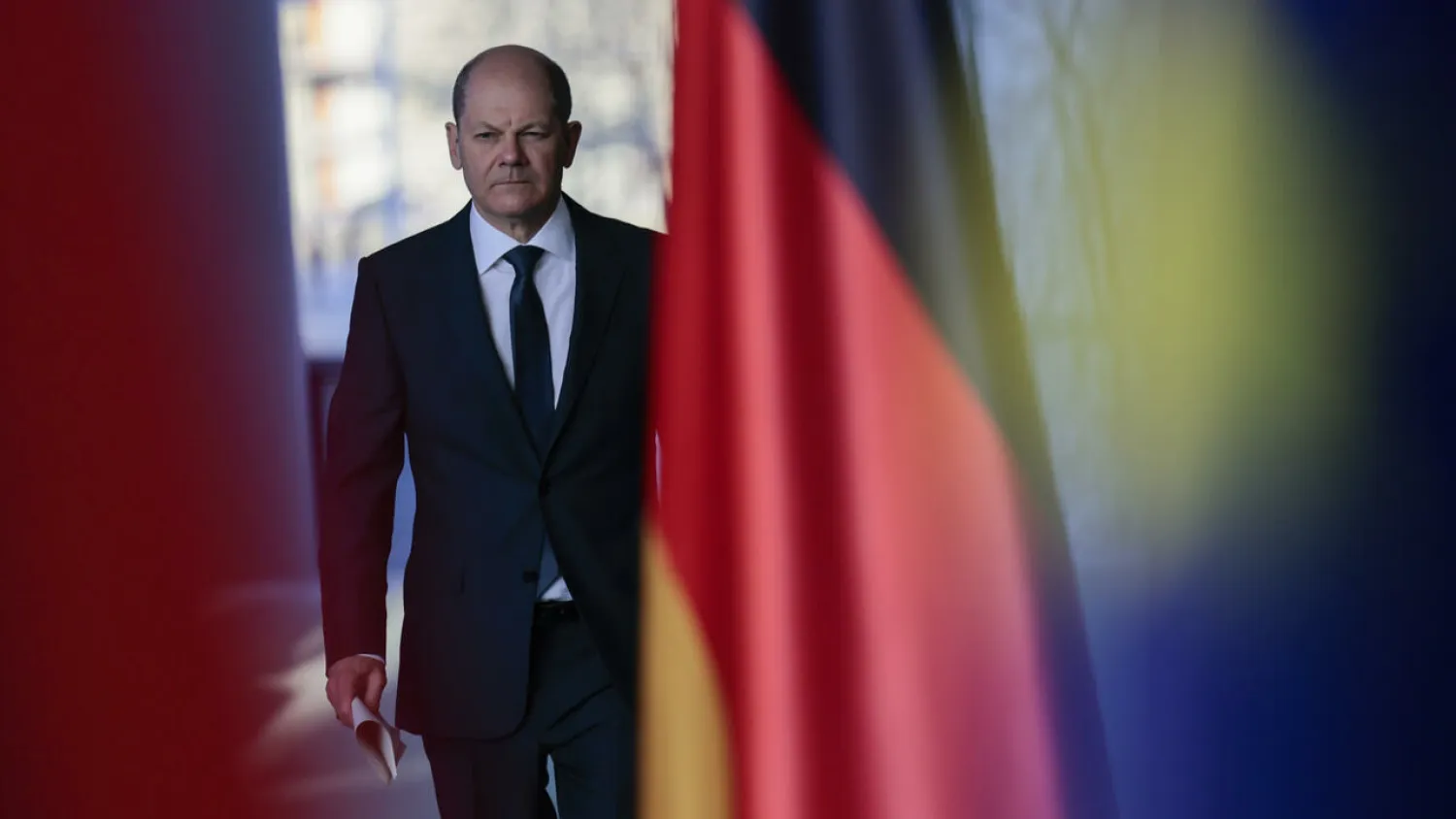German Chancellor Olaf Scholz has promised Ukraine world-class weapons -- from self-propelled howitzers to multiple launch rocket systems and an air defense shield capable of protecting a "large city" from Russian strikes.
But the sluggishness in the actual delivery of heavy weapons to bolster Ukraine against Russia's invasion has raised questions on whether the Social Democrat leader's pledges are sincere, AFP said.
Trust was already beginning to show signs of eroding among Germany's allies over the repeated rows over the urgently awaited armaments.
With Scholz's long-awaited trip to Kyiv expected to take place on Thursday, Ukrainian President Volodymyr Zelensky this week ramped up the pressure on the German chancellor.
"Every leader of our partner countries and naturally the chancellor as well knows exactly what Ukraine needs. It's just that the (weapons) deliveries from Germany are still less than they could be," Zelensky told Wednesday's Die Zeit weekly.
In a hint of what he seemed to think might be holding Scholz back, the Ukrainian president added in a separate interview with ZDF broadcaster that "there must be no attempt at a balancing act between Ukraine and the relationship with Russia".
Scholz himself has batted off the accusations, as he underlined that Germany "will deliver all the weapons that we have set in motion".
He argued, however, that there was no point sending complicated modern weapons without first training Ukrainian troops how to use them.
Training is underway in Germany, he told a press conference this week, stressing that the weapons will follow once soldiers know how to deploy them effectively.
"I think that it would be a good thing for one or the other to think for a moment before he expresses his opinion," he added, in a sign of irritation at the repeated queries.
With pointed criticisms levied almost on a daily basis -- including by Ukraine's outspoken ambassador -- Berlin fears they could unwittingly play into the hands of Russia.
- 'Middle of road' -
But observers said the bad press was not surprising given the stuttering German response compared to other major Western allies such as the United States or Britain, or even when put next to much smaller eastern European nations like the Baltic states.
Marina Henke, director of the Hertie School's Centre for International Security, said the problem is that "confusion" still reigns in the chancellery over how to handle Russia.
"There is no clear sense of direction," she told AFP, noting the US, Britain and eastern Europe have all identified Vladimir Putin's Russia as the clear enemy and therefore taken the lead in plying Ukraine with armaments.
"Here in Germany, there is the idea that Russia is a massive country on our doorstep and in all these actions, we need to think about how we can live with Russia in the long term," she said.
"That's why there is a confusion" that means major weapons pledges are being held up by Germany's complex bureaucracy, she added.
Marcel Dirsus of the Institute for Security Policy at Kiel University also noted that "the German government appears quite content to take a middle of the road approach where they're doing enough to avoid the most severe criticism, but they're not really taking any initiative to go beyond that.
"It's almost a deliberate attempt to do as little as they can get away with."
- 'Huge fog' -
Among the latest weapon promises made by Germany have been the Iris-T air defense system and the Mars II multiple launch rocket system.
But hours after Scholz mentioned the Iris-T, Foreign Minister Annalena Baerbock poured cold water on a swift deployment, warning it would take months before the air defense shield reached Ukraine.
The rocket launchers are due to arrive reportedly in August or September but on condition Ukrainian soldiers are trained to use them by then.
Gepard anti-aircraft tanks pledged in April have been delayed to July at the earliest due to an ammunition shortfall.
Seven self-propelled howitzers promised in May are pending amid ongoing training of Ukrainian troops.
Poland has accused Germany of failing to provide Leopard battle tanks to make up for the ones that Warsaw had sent ahead to Kyiv.
The Czech Republic is also waiting on a similar swap deal, but talks are still on.
"The German Ukraine policy has been shrouded in the last weeks by a huge fog of big announcements, logistical problems, tactical withdrawals and a verbal lack of clarity," said Die Zeit weekly.
The chancellery has defended its line as "strategic ambiguity", but the weekly warned that this policy "has a price that Ukrainians are paying daily" in hundreds of deaths in their eastern Donbas region alone.
"Clarity and sincerity are the minimum that Scholz must bring to Ukraine," it said.









